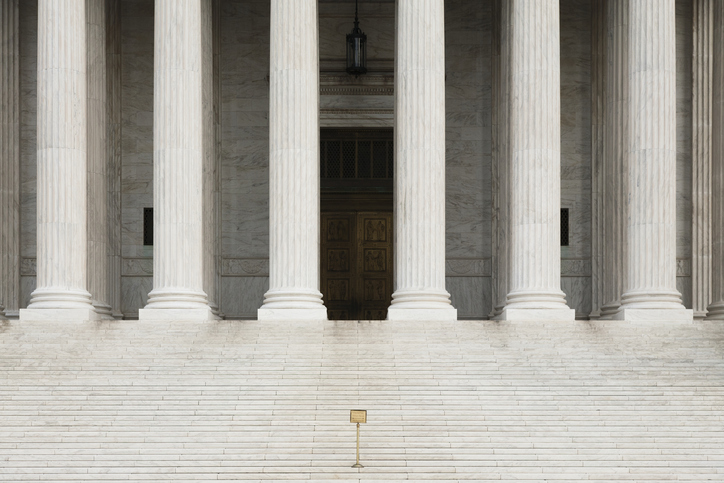Supreme Court to consider if weed users can own firearms

A number of important weed cases have been circulating throughout local governments in the past few months with varying results. In some cases, bipartisan support has led to hopeful prospects of legalization, while others have seen strict bans on hemp THC products considered. Now, a landmark case may be seen by the highest court in the country: the U.S. Supreme Court is set to discuss in September whether or not to take up a pending case that will consider the constitutionality of the federal government’s ban on firearm possession by marijuana users.
RELATED: Supreme Court ruling might kill weed reform
U.S. v. Cooper has been distributed to the justices and will be considered on September 29. The defendant was previously sentenced to three years in prison for possessing a firearm while being a marijuana user, but the charge was dismissed by the U.S. Court of Appeals for the Eighth Circuit in February. The court said nothing in its tradition “allows disarmament simply because [the defendant] belongs to a category of people, drug users, that Congress has categorically deemed dangerous.”
Other similar cases have been brought to the high court, like U.S. v. Baxter, which involves a defendant who was found to possess both a firearm and marijuana. He was charged under 922(g)(3), which punishes gun ownership by illegal users of controlled substances. The Department of Justice (DOJ) asked the court for more time to decide whether to review the constitutionality of the firearm ban, but the deadline given was passed without any new information being relayed.
The federal government is also asking the Supreme Court to review U.S. v. Hemani, making the case that 922(g)(3) complies with the Second Amendment. With all of these high-profile cases banking on the constitutionality of this law, if the Supreme Court were to take on Cooper in September, its ruling would effectively resolve all the others.
Ali Danial Hemani, the defendant in the aforementioned case, is also a cocaine user who’s sold drugs in the past according to the court—a possible reason why the DOJ is particularly focused on bringing the docket to the Supreme Court. If his past with harder drugs were to affect the court’s findings, 922(g)(3) could remain protected.
Hemani’s lawyers have argued the high court should decline the case: “With no circuit split and the limited scope of the summary affirmance below, this case is not an appropriate procedural vehicle for seeking this Court’s review.”
In recent months, a number of federal courts have made rulings that imply that 922(g)(3) may be less than constitutional. The Congressional Research Service published a report earlier this month that said that courts are “grappling with the renewed constitutional attacks to firearms laws and regulations, including the categorical restrictions in 18 U.S.C. § 922(g).” This came after courts struggled to define the threshold for an “unlawful user” of an illegal drug.
RELATED: Justice Clarence Thomas Is the Unlikely Cannabis Supporter on the Supreme Court
U.S. v. Cooper, in addition to the assorted related cases that have the Supreme Court’s attention, will make bold assertions about the constitutional rights afforded to cannabis users. Especially as the Second Amendment has entered mainstream debates about law in recent years, if Cooper is taken up and ruled upon, it’ll have a ripple effect around the entire country.